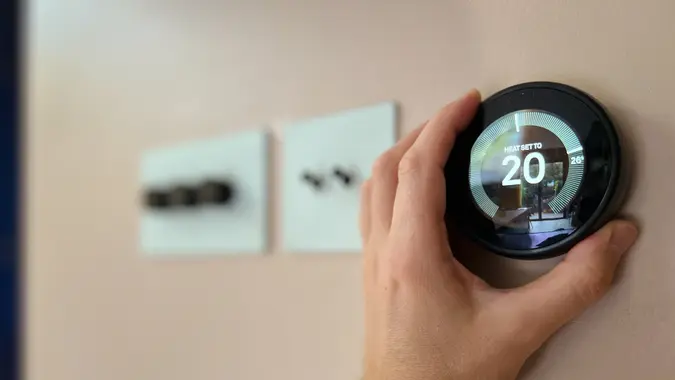Retirement Savings: Avoid Taking Early Withdrawals in 6 Savvy Ways

Commitment to Our Readers
GOBankingRates' editorial team is committed to bringing you unbiased reviews and information. We use data-driven methodologies to evaluate financial products and services - our reviews and ratings are not influenced by advertisers. You can read more about our editorial guidelines and our products and services review methodology.

20 Years
Helping You Live Richer

Reviewed
by Experts

Trusted by
Millions of Readers
Borrowing from a retirement account is tempting in times of financial emergencies like losing a job, or when you want to pay down bills or need extra cash for the holiday shopping season. Considering 63% of Americans live paycheck to paycheck, according to CNBC, having such a buffer can seem helpful.
However, this quick fix can have long-lasting results. Not only will an early withdrawal from a 401(k) or IRA incur a penalty and tax of about 10% if you’re under the age of 59-and-a-half (per CBS), but those dollars cannot be redeposited into the account. That means not only are you losing out on the dollar amount withdrawn, but the pre-tax and employer matching dollars that initially accompanied it, as well.
Unfortunately, that doesn’t typically stop people from doing it in a pinch. According to CNBC, citing data from Bankrate, 51% of Americans have taken early withdrawals from retirement accounts. That includes 20% who said they were forced to do so during the pandemic when funds were strapped due to loss of income.
While there are some financial situations when the need to withdrawal early is inevitable, there are several ways to sidestep this move and hold on to your retirement savings. Here’s what experts advise:
- Open a new credit card account: The goal here is not to take on extra debt, but to have a line of credit that helps provide emergency funding. However, researching who has the best offer is key before opening a new credit card account. Obviously, you should plan to pay it off as quickly as possible by looking for those that offer 0% interest promos to new customers for a limited time.
- Start saving into an emergency fund: Even if you start small, those dollars and cents will start to add up. Maybe it’s only $100 a month you can commit to right now — within a year that’s still $1,200. And at times when extra money might come in, such as a holiday work bonus or a tax refund, consider adding those funds to your savings account to pad it even further.
- Consider a home equity loan: If you have a home and don’t rent, you can tap into the property’s equity to access an extra loan. This will provide a solid lump sum of money you can use for financial emergencies. Of course, the bad news is you will have to pay it off like another mortgage payment. So before doing so, it’s best to calculate future projections to ensure you can afford this long-term bill.
- Look into a loan from a credit union: Credit unions may have better interest rates and less fees than a traditional bank, but you’ll need to have good credit and become a member, per Investopedia.
- Ask family and friends for a loan: When times get really tough, that’s when friends and family can be there for us the most. Sometimes asking those closest to us for extra financial support can be a good option, especially if you set up an established repayment plan ahead of time that keeps boundaries in line for both parties that won’t lead to any issues later, as GOBankingRates previously reported. Other options can include social contribution sites like GoFundMe.
- See if a 401(k) loan might be right for you: Taking a loan out on your own retirement savings might be a good way to go — it won’t incur the penalties a withdrawal would and you’re basically paying yourself back. But not all companies offer this incentive. Also, if you leave your job, you might have to pay back the full amount of the loan within 60 days or be taxed on it, according to Principal.com.
 Written by
Written by  Edited by
Edited by 

























